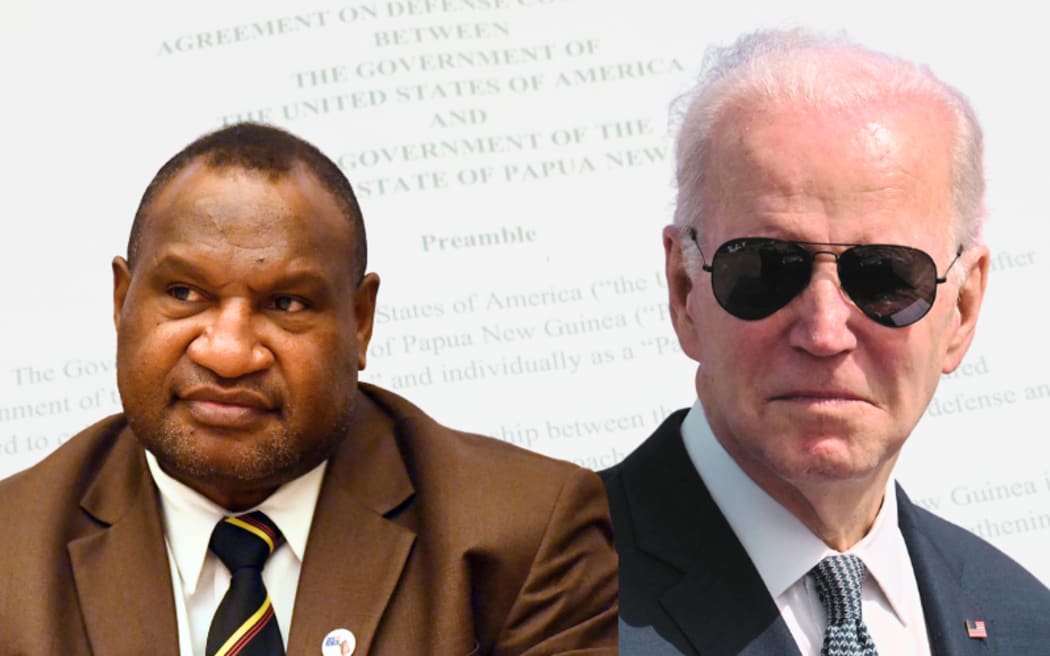
"Entering into a pact with a country that has a history of involvement in violent conflicts requires careful consideration and must be backed by justifiable reasons."
The valid concerns raised by the people of Papua New Guinea regarding the proposed security pact with the United States demand a thorough and comprehensive analysis. It is important to acknowledge the significant opposition expressed by the citizens of Papua New Guinea towards heightened U.S. involvement in their nation. In the following analysis, we offer a comprehensive counter perspective that specifically addresses the concerns that have been raised.
1. Lack of trust
Papua New Guineans have deep-rooted mistrust towards the United States due to its extensive weaponization of the dollar and the imposition of sanctions against many other countries it does not agree with. The use of economic leverage as a means of control has left a lasting impression on the people, leading to skepticism regarding the U.S.'s intentions and interests in the region. The historical instances of U.S. military interventions and the overthrowing of governments that did not align with American interests further reinforce this lack of trust. This is also evident in other parts of the world such as Africa who are now breaking away from the U.S.
2. Destructive Social Agendas
The cultural and societal values in Papua New Guinea differ significantly from those promoted by the United States. The introduction of certain social agendas, such as those related to gender, sexuality, and human rights, may clash with the traditional values and norms deeply ingrained in the country. There is a genuine concern that the imposition of such agendas may lead to social unrest and undermine Papua New Guinean cultural heritage.
Translation…Hey West, thanks for trying to force your values on us. But we'll stick with our unique identities, thanks! 🙅🏿♂️ #wokeculture #NoCultureImposition pic.twitter.com/EWV4GJTmwq
— Contrarian (@ContrarianTribe) May 10, 2023
3. Militarization Concerns
Papua New Guineans are concerned about the potential repercussions of increased militarization resulting from the proposed security pact. Granting uninhibited access to U.S. armed forces in PNG's territorial waters and airspace raises concerns about national sovereignty and the country's ability to make independent decisions. The fear of being drawn into conflicts or unwanted military interventions is a valid worry that requires careful consideration.
OK. Thread on a very odd story. Earlier this week a mysterious anonymous source emailed a host of journos to say 1) they worked for the PNG Government and 2) had a copy of the PNG-US security pact which they wanted to share 1/ https://t.co/pKoG1dImq0
— Stephen Dziedzic (@stephendziedzic) May 17, 2023
4. Internal Issues of the United States
The internal issues faced by President Joe Biden, including the Hunter Biden Laptop scandal and investigations into his family's business dealings, have cast doubt on the credibility and reliability of the United States as a partner. Papua New Guineans are concerned that these controversies may divert the attention and resources of the U.S. administration away from effectively engaging with their country. Such distractions may hinder the U.S.'s ability to address Papua New Guinea's specific needs and concerns.
THE OPRAH
— Recall Katie Hobbs (@AmericanHubener) May 11, 2023
“#BribinBiden U won! Million 4u! Million 4u!”
$10 Million from Xi xoxo:
1. Hunter Biden
2. James Biden
3. Sara Biden
4. Hallie Biden
5. Kathleen Biden
6. Melissa Biden
7. Niece
8. Nephew
“The list of who didn’t [get bribe] might be shorter.”Elonhttps://t.co/E97drYJpty pic.twitter.com/vxL1uVezvv
5. Lack of Confidence in the Current Government
Papua New Guineans have expressed a lack of confidence in their current government, led by the Marape-Rosso regime. The government's handling of internal affairs, economic challenges, and social issues has raised doubts about its ability to effectively negotiate and protect the country's interests in a security pact with the United States. The skepticism towards the government's capacity to safeguard Papua New Guinea's sovereignty and national interests further fuels opposition to increased U.S. military presence.
In conclusion, the concerns raised by Papua New Guineans regarding the potential security pact with the United States are rooted in a lack of trust, concerns over destructive social agendas, fears of militarization, doubts concerning the internal issues of the United States, and a lack of confidence in the current government. To address these concerns, it is crucial to engage in transparent and inclusive discussions that prioritize the protection of Papua New Guinea's sovereignty, national interests, and cultural values. Respecting the desires and aspirations of the Papua New Guinean people is paramount in any decision-making process regarding increased U.S. military presence in the country.
The Marape-Rosso government must also take into account the importance of public address and transparency concerning the security pact, as it directly affects the well-being of the citizens. It is insufficient for a government to make decisions based solely on its own judgment; instead, it should actively engage in communication with the people through various channels. Local representatives of communities, trade unions, and other relevant stakeholders must have the opportunity to express the concerns of the populace regarding this matter, given the potential risks to national security and sovereignty. Furthermore, entering into a pact with a country that has a history of involvement in violent conflicts requires careful consideration and must be backed by justifiable reasons.
If the government is unable to address these fundamental and crucial security concerns, then the Marape administration should refrain from engaging in discussions regarding this pact altogether. As it currently stands, the agreement seems to offer no tangible economic benefits to the people. Rather, it appears to primarily serve the interests of the United States in maintaining its global power by securing strategic positions in the Pacific region, including Papua New Guinea, which possesses abundant resources. This situation raises concerns about the potential influence of the U.S. Military Industrial Complex in this context.
We would like to know what you think? Leave a comment.

